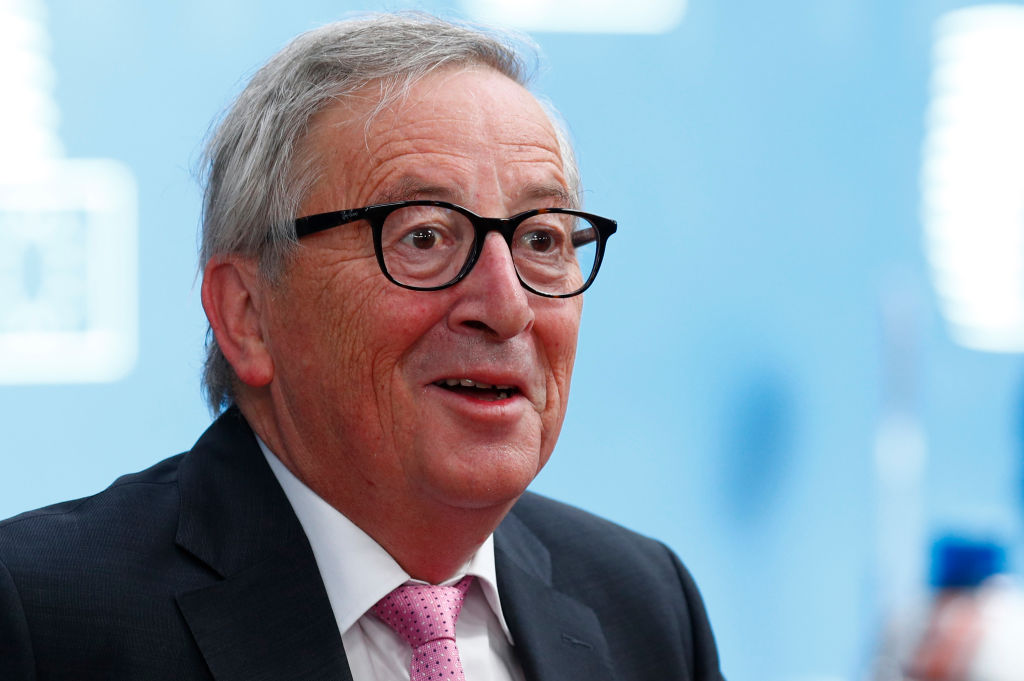Who will replace Jean-Claude Juncker? That’s the question being decided at the European Council summit. But so far, things are not going to plan. From Sunday afternoon, leaders – along with Theresa May, who promised to be “constructive” in the debate – have been discussing who should take over the most senior EU jobs, including the successor to Juncker as European Commission president. Now, the meeting has been suspended until tomorrow without any decision made.
Whoever takes over will do so at a key time in the Brexit process. The president will handle the Brexit process on the EU side, whether in terms of making changing to the Political Declaration (which Brussels claims it is open to), negotiating the future relationship with the UK, or leading the Commission’s preparations for a no-deal scenario.
While unanimity is not required to appoint a new president (in 2014, Jean-Claude Juncker was strongly opposed by David Cameron), coming close to that would send a strong political message: that the EU is able to remain united despite Brexit and all the other challenges that it faces.
But this would only happen in an ideal world. In reality, compromise has become the key word in the process of choosing the new Commission president.
Most leaders agree that whether or not they go for one of the lead candidates of the political groups in the European Parliament, everyone will need to compromise in order to come up with a Commission president candidate that is satisfactory. This will then help determine the overall ‘package’ of top jobs, which also includes the presidencies of the European Council, the European Parliament and the European Central Bank, as well as the High Representative for EU Foreign Affairs.
The need to find the right balance between nationality, political group, background and gender for all of these positions creates a complicated jigsaw puzzle through which leaders need to navigate.
No political group in the European Council has a majority. Recent elections in Denmark and Finland led to victories for parties belonging to the centre-left Socialists & Democrats, while the centre-right European People’s Party (EPP) lost Austria after chancellor Kurz’s government collapsed. Political influences have become more or less equally distributed in the Council.
Even if any two groups ally together to support a candidate, it will not be enough to reach the qualified majority necessary in the Council (55 per cent of member states representing at least 65 per cent of the population). As such, the three main groups and their most important representatives in the Council – German chancellor Angela Merkel from the EPP, French president Emmanuel Macron for the liberals and Spain’s prime minister Pedro Sanchez for the Socialists – must reach a compromise.
Then they also need to take into consideration support in the European parliament, which has become more fragmented following the elections in May. The candidate proposed by leaders must have the support of the majority at the very least, but a candidate that does not satisfy the fourth largest group in the Parliament, the Greens, would also lack political legitimacy.
The German EPP lead candidate Manfred Weber has already been previously rejected. Over the weekend, there have been suggestions that Frans Timmermans, the Dutch lead candidate of the Socialist group could be the right compromise candidate (despite his group coming second in the elections). But soon enough a number of EPP leaders, the four Visegrad countries (Hungary, Poland, Czech Republic and Slovakia), and Italy, all said they were opposed, leading to deadlock. Sunday’s summit was delayed by hours as leaders tried to find a solution through one-on-one talks.
Leaving this morning’s meeting, a number of heads of state were visibly frustrated about the Council’s inability to reach an agreement quickly and efficiently, as nobody wanted to compromise. Macron said these long meetings “which don’t lead to anything” give an “image of a Europe that is not serious.”
At the same time, this is just the beginning of the complex decision-making process for the next five years. Whether it is at 28 – or at 27 when the UK leaves – with a more fragmented European parliament, and increasing divisions between member states, any agreement will be difficult to reach.
At the Council summit in June, four member states blocked the target pledge of zero carbon emissions by 2050. Meanwhile, negotiations over the post-Brexit budget (which must be completed by the end of the year) are not finished; there is also nothing close to an asylum policy reform, while member states continue to fight over who should take in refugees, as the recent case of Sea-Watch 3 demonstrates.
The impasse in which EU leaders find themselves after a long night of failed discussions is just another example of the complex and politicised decision-making process that will characterise the dynamics in EU institutions for the next five years.
Anna Nadibaidze is research and communications associate at Open Europe






Comments